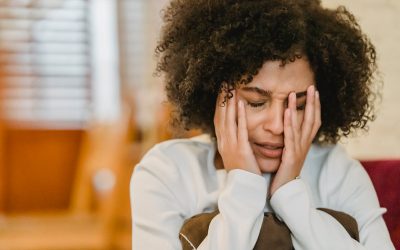Are you noticing that your hairline is receding? Is there thinning on top of your head? These are just some of the common signs of hair loss in men.
All these hair changes are normal. It is part of ageing – something that all men are going to experience. In fact, reports show that 60% of males aged 35 suffer from early signs of hair loss.
However, the idea that alopecia is a usual occurrence in men (even in women) isn’t enough to lessen the worry. Coming to terms with it can be difficult since your hair – its appearance, style, colour and the like – is part of who you are.
Before you panic and feel sad though, please visit a trusted dermatologist or trichologist in Dublin. A hair and scalp specialist can determine what is causing the alopecia.
You see, there are different causes of hair loss. For all you know, the culprit is nutritional deficiency and not the dreaded male pattern baldness – the most prevalent type of hair loss in men.
Once the cause is identified, steps can be taken to address it. This now leads us to the question – what’s the best hair loss treatment for men?
Here’s the thing:
There is no such thing as a one-size-fits-all treatment for male hair loss. What works for you may not have the same effect on another sufferer.
Basically, the best treatment for your alopecia is one that takes into consideration important factors such as the cause and severity of your condition.
Currently, hair loss treatment for men may include medications, procedures and even lifestyle changes. Your dermatologist or trichologist may use one of them or a combination depending on how extensive the problem is.
Hair Loss Medications for Men
There are two clinically-proven medications for hair loss prescribed to men. One is a topical medication that is applied on the scalp twice a day. The other is a pill taken once a day.
Although they are effective, these medications do not cure male pattern baldness. Keep in mind, this type of hair loss problem is irreversible. The medicines are formulated to slow down the balding and promote the growth of new hair.
Furthermore, the effects of these drugs are not instantaneous. It can take a while before you see results. So, you need to be patient and religiously follow your doctor’s orders.
Hair Loss Treatment Procedures for Men
Aside from medications, there are also non-invasive and invasive procedures used to address male alopecia.
The most popular non-invasive treatment is low-level laser therapy. This approach is meant to stimulate follicular activity for new hair to grow.
Another similar approach is Psolaren with Ultraviolet A Light (PUVA) which is usually recommended when large bald spots are involved. Here, the medication, Psolaren, is applied to the affected area to make them more sensitive to UV light.
What’s great about these procedures is that they are painless. You won’t experience any downtime as well. Also, they have no side effects.
For the invasive procedure, there is hair transplant. This is only recommended when all other conservative approaches are not working anymore. One of the upsides of this approach is that you’d get natural-looking hair.
The catch is:
It is not for everyone. You must meet certain criteria to be eligible for hair transplantation. Plus, it can be expensive and time-consuming.
Lifestyle Changes to Minimise Male Hair Loss
The kind of lifestyle you have can promote (and sometimes even cause) alopecia. Making some changes can prevent some types of hair loss in men.
As mentioned earlier, alopecia can happen because of nutritional imbalances. To reverse and avoid this type of hair loss, you need to have a balanced diet. You can also ask your physician if she can prescribe you supplements to ensure that you meet the recommended dietary requirements for essential nutrients.
Quitting smoking is highly recommended as well. Reports show that smoking has negative impacts on hair health. It causes premature greying and even hair loss.
Lastly, minimise stress in your life. Constant and prolonged exposure to stress can cause your hair to fall off. In fact, some scientists believe that stress triggers alopecia areata – an autoimmune condition that causes clumps of hair to fall off and bald spots to develop.
Searching for the best hair loss treatment for men in Dublin? We have trained and experienced hair specialists who can design a treatment plan that meets your needs. Call us now on 016793618 to schedule an appointment!
—



